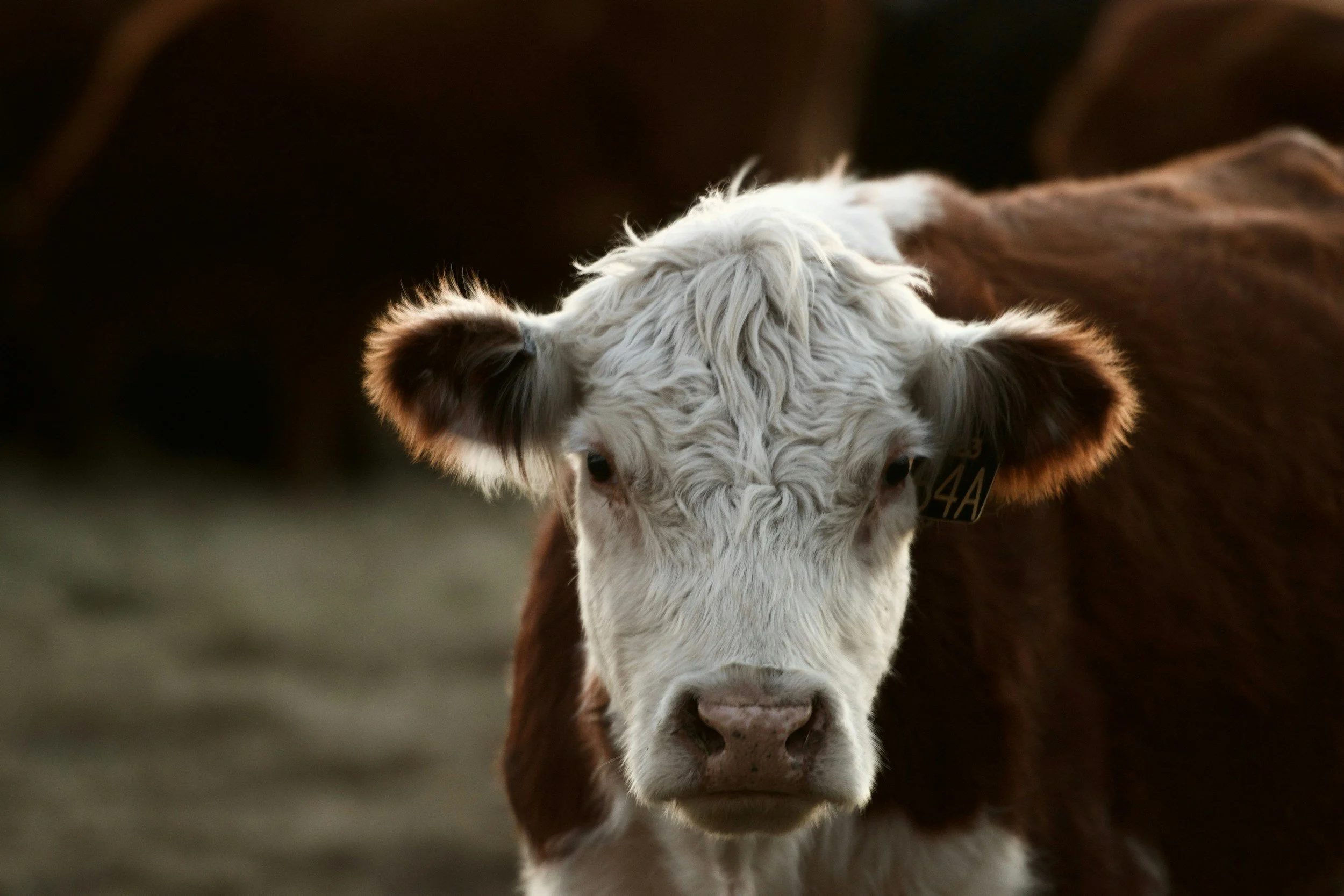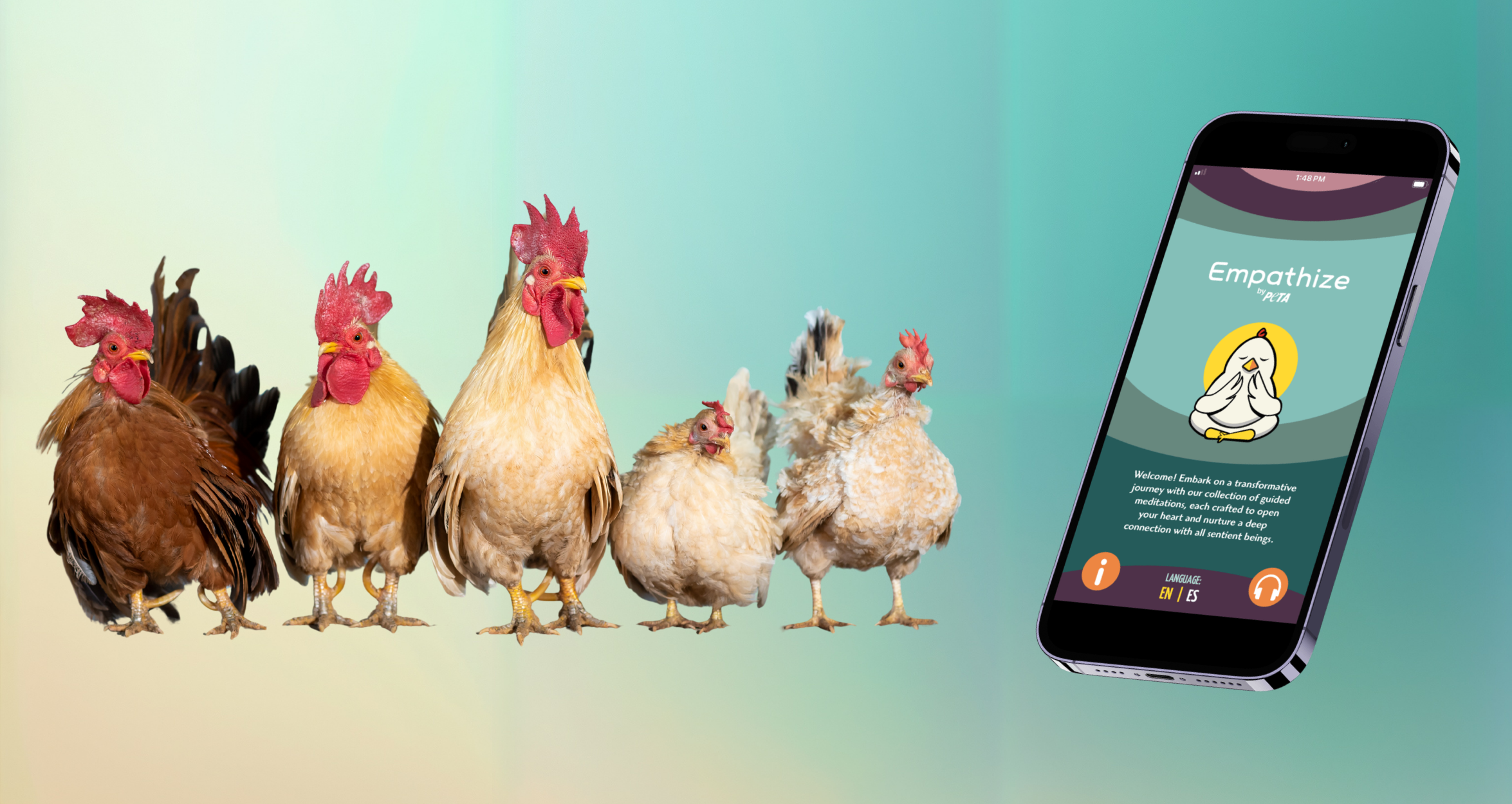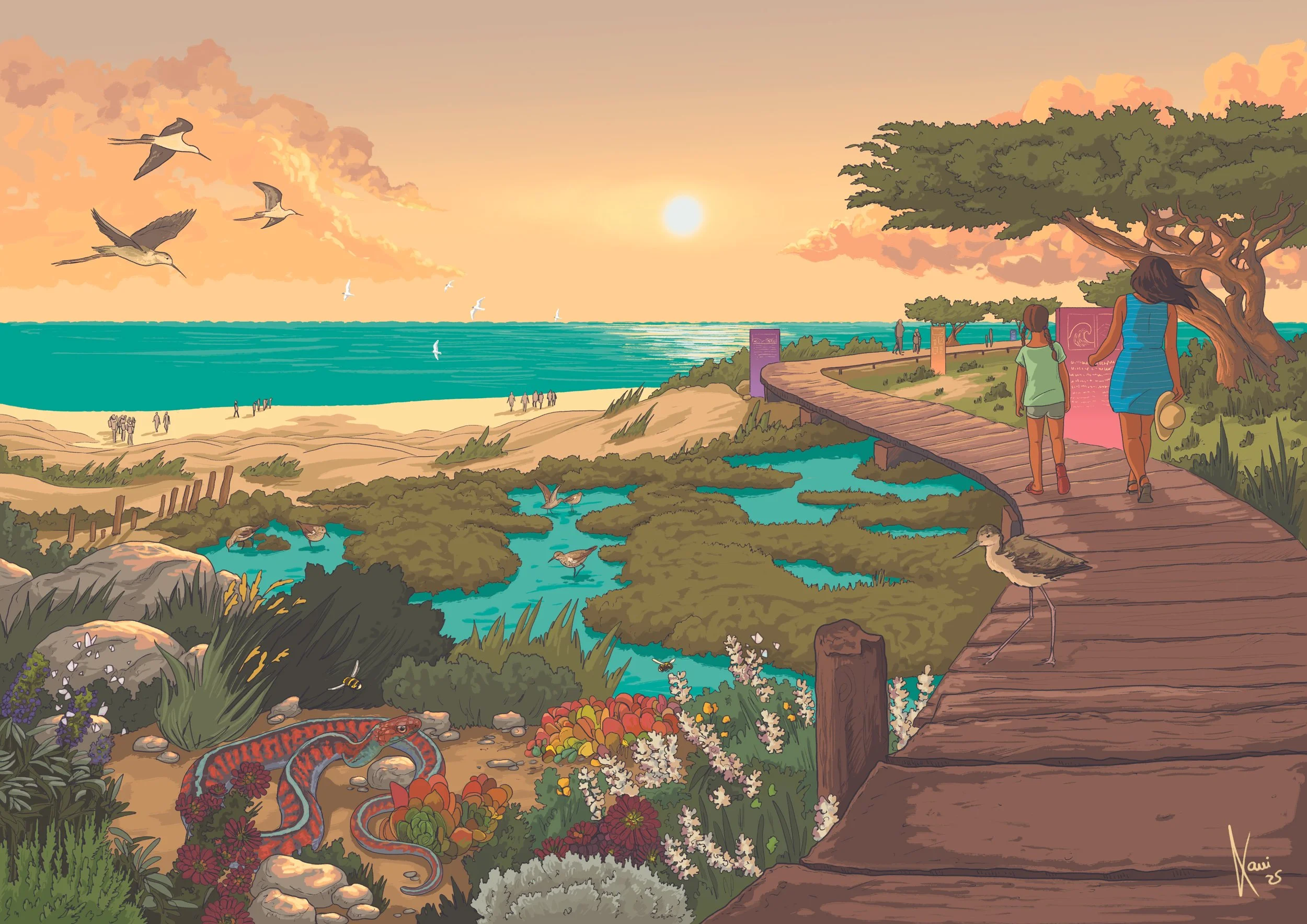Our Founder Ate Chicken for the First Time in 40 Years (And No Animals Died)
Photo: Uma Valeti, founder of UPSIDE Foods, and Elizabeth Novogratz, founder of Species Unite, during the Species Unite event in New York this week
Elizabeth Novogratz had promised herself she’d never eat meat again. She was 13 and she’d just seen slaughterhouse footage for the first time. Watching the blood, the struggle, and the terror in the animals’ eyes was enough to put her off chicken nuggets and beef burgers for life.
She kept that promise for nearly four decades, learning more about the industries that abuse animals and doing everything in her power to advocate for change. Her efforts led to the launch of Species Unite, a 100,000-strong community and media platform that stands for a world of co-existence for all species.
Never in a million years did she expect to eat real chicken meat again - until this week.
On Monday, Elizabeth hosted a Species Unite event in New York, which featured Uma Valeti, the founder, of UPSIDE Foods. The start-up company has recently received approval to sell its chicken in the US. But there’s something different about this chicken - and to the 70 billion chickens that die in the food system every year, it’s the difference between life and death.
UPSIDE’s chicken is produced directly from animal cells with no need to raise and slaughter billions of animals. The cultivation process starts by placing cells from a selected cell line into a cultivator and feeding them with a blend of nutrients, which includes water, sugars, amino acids, vitamins, minerals, and salt. As these small batches of cells, called seed trains, multiply, they increase the size (and/or number) of the cultivators to give them more space to grow. This method can be used to produce meat, fish, and dairy products all while removing the need to raise and farm animals for food.
During the Species Unite event, Elizabeth hosted a Q&A with Uma, explaining to an audience of majority meat-eating attendees the animal, planet, and human-saving qualities of cultivated meat.
Guests were also given a taste of UPSIDE’s chicken. Elizabeth tried real chicken for the first time in 40 years and became the first purchaser of cultivated meat in the state of New York: “I can’t believe I’m going to put chicken in my mouth,” she said in a video documenting the landmark moment.
“The weirdest thing about was that it wasn’t that weird. I expected to be a little horrified about the actuality of eating meat, but since I knew that there was no animal involved, it was one of the most exciting eating experiences of my lifetime,” says Elizabeth. “Tasting that chicken was tasting the end of animal agriculture and I don’t think anything on earth tastes better than that.”
UPSIDE Foods made history last year when its cultivated chicken was approved for sale by the FDA. Despite the rapid progress of this industry (just a few years ago, scientists weren’t even sure if real meat could be grown from animal cells), there’s pushback coming at it from every angle, with states and whole countries propelling forward laws that would ban the game-changing food tech.
“If we could see the hell-hole of cages, feathers, beaks, chickenshit, bird-flu, antibiotics and, worst of all, brains tortured with a short but horrifying life of suffering, we’d throw up before downing our next drumstick.”
The Species Unite event coincidentally came hot on the heels of a new scathing New York Times article, which dubbed cultivated meat as "the revolution that died on the way to dinner."
Chris Anderson, Head of TED, who co-hosted the Species Unite event, clapped back at the NYT article in a tweet that quickly reached close to four million people: “As if it were ever going to be easy to transform the way 8 billion humans feed themselves.”
Cultivated chicken at the Species Unite event
UPSIDE is growing its cultivated chicken in see-through facilities to symbolically show that they have nothing to hide - a far cry from the undercover footage of slaughterhouses that Elizabeth watched all those years ago.
“Those chickens, by contrast, are not grown behind glass. They're shielded inside closed-off massive meat factories. And for a reason. If we could see the hell-hole of cages, feathers, beaks, chickenshit, bird-flu, antibiotics and, worst of all, brains tortured with a short but horrifying life of suffering, we'd throw up before downing our next drumstick,” tweets Chris.
“To imply as the NYT did that next-gen meat will be slowed by some kind of ick factor is a woeful underestimation of human adaptability. When the truth will out - and it will when there's actually an alternative available - the ick factor will run the other way,” he adds.
Whilst Elizabeth has thrived and survived (much to the horror of many keyboard warriors she’s encountered over the years) on a plant-based diet for the majority of her life, she’s aware that for most people, meat is a big part of their diet. For some, not even slaughterhouse footage can convince them to give it up.
That’s why she believes cultivated meat is the solution the world - and animals - need. A sentiment Chris shares: “This technology really matters. It will probably be impossible to lure humans away from our meat addiction. I personally love meat. I want it to be part of my future. And last night I saw a glimpse of how that can happen in a way that will be both delicious and kind -- to our fellow creatures, and to the planet.”
In 2024 and beyond, Species Unite will continue to champion solutions, including cultivated meat, that can help transition the world away from animal products. Join our community by becoming a member today and check out our Future of Food podcast episodes to learn more about cellular agriculture.
Although cultivated meat still has a way to go before it’s on supermarket shelves, you don’t have to support animal suffering. Sign up to our 30-Day Plant Power challenge to follow in Elizabeth’s footsteps by making cruelty-free choices when it comes to your food and fashion.
We Have A Favor To Ask…
Species Unite amplifies well-researched solutions to some of the most abusive animal industries operating today.
At this crucial moment, with worldwide momentum for change building, it’s vital we share these animal-free solutions with the world - and we need your help.
We’re a nonprofit, and so to keep sharing these solutions, we’re relying on you - with your support, we can continue our essential work in growing a powerful community of animal advocates this year.











